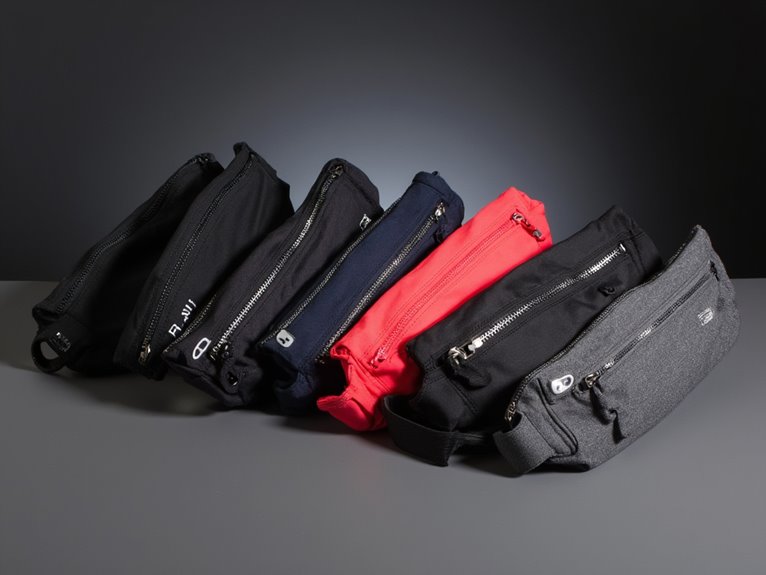Is Cast Iron Better Than Tefal?
Cast iron pulls ahead of Tefal in the cookware showdown, boasting a 50-year lifespan versus Tefal's 2-5 years. Durability and heat retention make cast iron a cooking powerhouse, searing meat to perfection and distributing heat evenly. Meanwhile, Tefal's non-stick coating chips and flakes, leading to hotspots and uneven cooking. Proper care yields a lifetime of cooking bliss with cast iron, and its health benefits can't be beat. Want to know the secrets to harnessing your cast iron's full potential?
We are supported by our audience. When you purchase through links on our site, we may earn an affiliate commission, at no extra cost for you. Learn more. Last update on 7th January 2026 / Images from Amazon Product Advertising API.
Durability and Longevity Compared
On average, a well-cared-for cast iron skillet can last for 50 years or more, while a Tefal non-stick pan's lifespan typically ranges from 2 to 5 years, highlighting a significant disparity in durability and longevity between the two materials.
This enormous gap can be attributed to the difference in construction and materials used. Cast iron, being a dense and thick metal, can withstand high temperatures and rough handling, making it a workhorse in the kitchen.
In contrast, Tefal's non-stick coating is prone to chipping and flaking, reducing its lifespan. With proper care, a cast iron skillet can become a trusted companion, while a Tefal pan may need frequent replacements.
Cooking Performance and Results
In respect to cooking performance and results, cast iron skillets take the cake, as they effortlessly sear meat to perfection and distribute heat evenly, whereas Tefal pans often struggle to achieve the same level of browning and crispiness.
This is because cast iron retains heat exceptionally well, allowing for a perfect crust to form on your steak or chicken.
Additionally, the natural non-stick seasoning on cast iron pans guarantees that food releases easily, reducing the risk of food sticking and burning.
In contrast, Tefal pans can be prone to hotspots, leading to uneven cooking and a subpar dining experience.
As regards cooking performance, cast iron is the clear winner.
Ease of Cleaning and Maintenance
Cast iron skillets, with their rugged, battle-hardened exterior, require a bit more TLC regarding cleaning and maintenance, but the payoff is well worth the extra effort.
A gentle scrub with soap and warm water, followed by a thorough drying, will keep your skillet in top shape.
Avoid harsh chemicals or abrasive cleaners, as they can strip away the seasoning.
For tough messes, mix equal parts water and white vinegar in the skillet, bring to a boil, and let simmer for 10 minutes.
Meanwhile, Tefal skillets are generally easier to clean, thanks to their non-stick coating, but may require more frequent replacement.
With cast iron, a little extra elbow grease upfront yields a lifetime of cooking bliss.
Health Benefits and Safety Concerns
What's cooking in your kitchen can have a profound impact on your health, and the choice between cast iron and Tefal skillets is no exception.
Cast iron, when seasoned properly, can be a healthy choice, as it leaches iron into food, which is especially beneficial for individuals with iron deficiency.
On the other hand, Tefal skillets are made with non-stick coatings that can contain harmful chemicals like PFOA and PTFE, which can leach into food when heated.
These chemicals have been linked to various health issues, including cancer and thyroid disease.
In terms of safety, cast iron is the clear winner, but it's essential to maintain your Tefal skillets properly to minimize the risks associated with non-stick coatings.
Versatility and Cooking Options
Every kitchen enthusiast knows that a versatile skillet is essential, and with regard to cooking options, both cast iron and Tefal skillets have their strengths and weaknesses.
Cast iron skillets are the ultimate chameleons, effortlessly shifting from stovetop to oven to grill. They can sear a perfect steak, cook a hearty stir-fry, or even bake a decadent skillet cake.
Tefal skillets, on the other hand, excel at high-heat searing and quick cooking, making them ideal for dishes like pancakes, eggs, and crepes.
While cast iron offers unparalleled adaptability, Tefal's non-stick coating makes cooking and cleaning a breeze.
Ultimately, the choice between the two comes down to your cooking style and the type of dishes you want to create.



